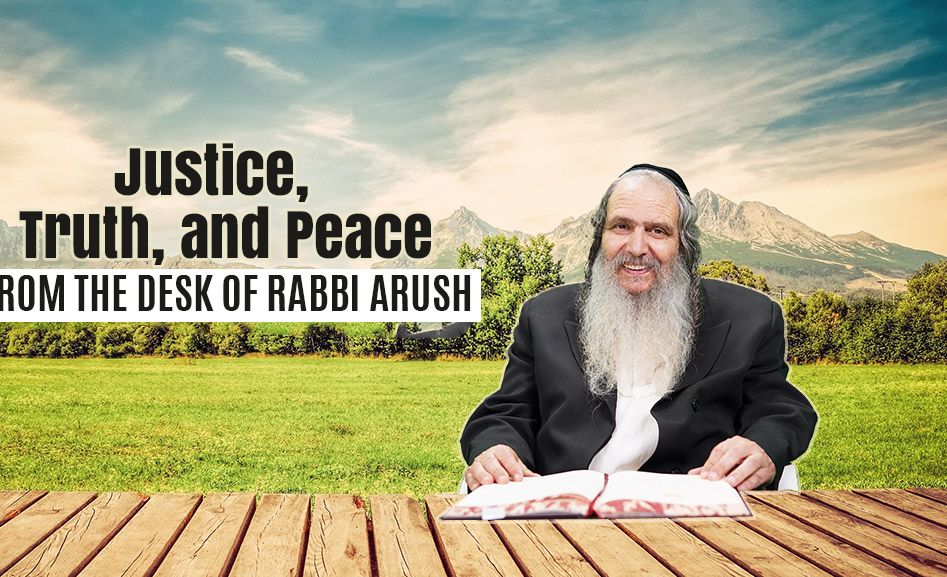
The Holy Hour
The greatest remedy for sadness in this world isn’t comfort. It isn’t escape. It’s giving. Hashem takes great joy in giving. The greatest gift He gives is a life of giving.

“It’s been 10 years. I need a little break. Can you help with the kids in the morning?”
Those words came at me like an RPG. Didn’t my wife realize that I had to be first at work each day, and it involved leaving early?
“I have been taking care of everyone’s needs in the first two hours of the day since 2008. I am beginning to feel like a single mother.”
Don’t I make the money? I work very hard to provide for us.
“Yes, you work really hard, and I know it. I love you for it. But you don’t work Friday, and I spend all day cleaning the house, preparing for Shabbat, and bathing the kids while you sleep in. You also take those nice long naps Shabbat afternoon while I am cleaning up the table and doing the dishes.”
My mother-in-law always thought Shula could be a top-notch lawyer. Okay. How hard can this be?
My First Day
“Wake up. Breakfast.”
Wonderful. I think I will ask my wife to make eggs today. She makes great eggs.
“If you don’t get up and do what we agreed, I will throw you out of this bed.”
She wouldn’t.
SMASH!
She means business.
“The list is right next to the coffee machine, which you need to turn on.”
First item, make the kids breakfast. Cereal for Ari, pita with cream cheese for my older daughter, Challah with chocolate milk for my youngest.
“What are you doing? That’s not how you make chocolate milk. First boil some water, then put a little bit in the cup. Mix the powder into the hot water, then fill it up with milk.”
Even at my first job fixing hamburgers I made a few mistakes.
The kids get up. I have to encourage them to get out of bed without doing what my wife did to me, and then convince them to wash their face, sit down at the kitchen table, and start eating.
Memos work at the office. The kids need a lot more.
Breakfast done. I sit down.
“Oh no. You need to make your breakfast. Then fix your lunch, which I made for you yesterday. Just scoop out the chicken and rice and put it into a smaller container.”
Lunch done. Now, I can rest.
“Our bed is a mess. Ari’s bed is a mess. The girls can take care of their own, I taught them that, but you know how men are, right?”
She shook her head.
“No, you don’t.”
I make both beds. The pillows are fluffed and sitting in a perfect line, the blankets evenly distributed throughout.
I prepare myself the day’s first cup of coffee.
“That better be for me! The kids need their lunches. Don’t forget to fill the bottles with cold water from the fridge or they will be drinking soup come noontime. Don’t forget, Ari likes a baguette and the girls have pita.”
It’s been 45 minutes of nonstop running, constantly nudging the kids to eat, doing three things at once . . . and I haven’t even sat down for more than 10 seconds.
“Is Ari packed up and ready for school? Did you dress him yet?”
I run from room to room getting his books, packing his food, and arranging his backpack. Then it’s off to make sure he puts on his uniform.
“Did you make sure he put deodorant on?”
Ari is on the Autistic Spectrum. He can do most of this on his own, but he needs some help.
Finally, I can sit down.
The phone rings. It’s Ofer, Ari’s bus driver.
“I will be at the stop in three minutes.”
I take Ari out. The Ofer and the Melave, who watches the kids in the bus, look at me with grimaces.
One is an Israeli, the other an Arab. Somehow, the language of “Your wife staged a palace coup?” is universal.
The first moments of my day sitting down were during the morning’s Torah reading.
Then I got called up for the Levi Aliyah.
The Lesson
That first day was extreme.
What transpired that morning was harder than anything that came after it. A meeting with the CEO? Easy. Co-workers looking to put that knife inside you the moment you mess something up? Piece of cake. A White Paper that must get 1,000 views by Friday, or else?
Ha!
Double Ha!
Ha Ha!
If my wife applied all of the management skills she developed running our household, I would be working for her.
Technically, I already am.
The entire week was tough. I made a hundred mistakes.
A few weeks later I got into a groove. Less mistakes meant I had more time. I started to make my wife breakfast.
After two months, she gives me the greatest compliment ever:
David, I don’t feel like I am doing this alone anymore.
Back to Normal
Then, the inevitable came. We came to our senses.
“Congratulations, you’re off the hook. I can take it from here.”
Then, her face turned white. She asked me if I was hallucinating or something.
“You refuse? What do you mean you refuse? Don’t you want to be back on that bus listening to Two Nice Jewish Boys?”
For an entire hour I am completely dedicated to serving my wife and children. They see a daddy doing for them. She sees a husband who wants to show her his appreciation for all the work she does for us.
For this holy hour, I am in a state of total giving. It feels like I am closer to Hashem during this than davening in the hour that follows.
The Lubavitcher Rebbe sums it up: When you love your fellow, you love who God loves.
Loving your neighbor, your fellow Jew starts with the people in your home. It’s as simple as taking out the trash, washing some dishes, doing one thing to make anyone in your family’s life a bit easier.
The holy hour teaches me that the greatest remedy for sadness in this world isn’t comfort. It isn’t escape. It’s giving. When you give to others, you find purpose, joy, and strength.
Now, I wouldn’t give up this daily gift for anything. My wife, with about a thousand other chores on her shoulders, didn’t put up much of resistance to my new resolve.
Hashem makes us in His image. His first command to man is to be fruitful and multiply.
I think it’s because He takes great joy in giving, and the greatest gift He gives His children is a life dedicated to giving.
He doesn’t need our mitzvot. He gives us the chance to give to Him. His rewards for performing mitzvot are Divine incentives to perform the most satisfying acts in His world: to give to our Creator.
Descending Upward to Greater Heights
If the world is upside down, then in order to see things clearly, you have to stand on your head.
In a world dedicated to taking, those who have more are on top. Those who have less are on the bottom. There are haves and have nots, the elite and the proletariat, the aristocracy and the peasants.
In a world dedicated to giving, it’s the absolute opposite.
Everybody has an equal opportunity, at all times, to experience their greatest hour. The poor, who give of themselves with superior sacrifice, are the haves. The oppressed, who give at the greatest risk, are also the haves. The rich and powerful, are the also-haves.
This is the open treasury of the world God gives all of us.
***
David Ben Horin lives in Afula with his wife and children. Since moving to Israel, David has discovered Hashem, Torah, Emunah, hiking, coding GatsbyJS Apps and hearing stories about the Land of Israel from anyone excited to tell them. Email him your favorite Israel story at: david.ben.horin@spreadyourenthusiasm.com.







Tell us what you think!
Thank you for your comment!
It will be published after approval by the Editor.